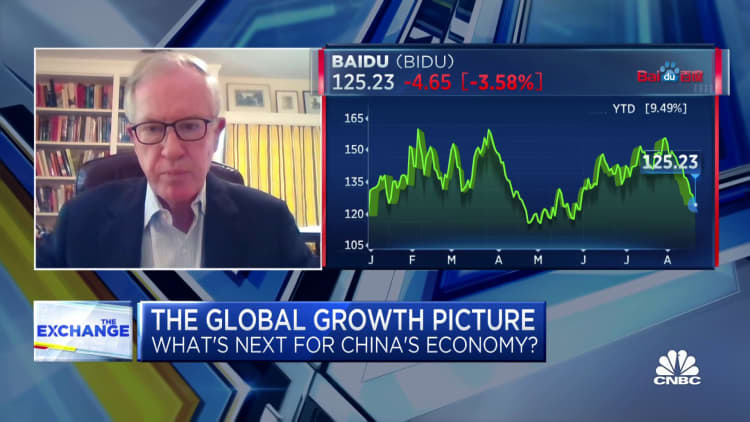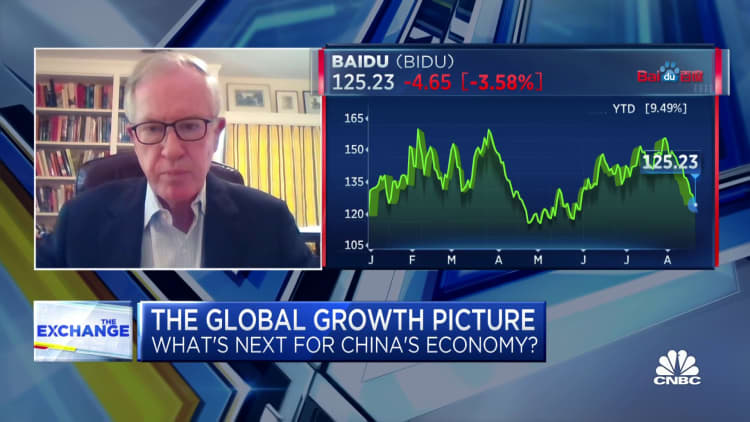People walk past the headquarters of the People’s Bank of China (PBOC), the central bank, in Beijing, China September 28, 2018.
Jason Lee | Reuters
BEIJING — Chinese financial regulators at a central and regional government level held a video conference Friday to discuss the resolution of financial risks, according to a readout Sunday from the People’s Bank of China.
The meeting called for coordinating financial support to resolve local debt risks, and adjusting policy for real estate loans.
The weak financial situation of local governments has prevented the central government from supporting the economy with fiscal policy, Rhodium Group analysts said in June.
Falling land sales from the property market slump has also been a drag on local government revenues.
Investors are increasingly sensitive to the idea that some governments may not be able to rescue their debt-raising vehicles.
China has so far taken a relatively cautious stance on stimulus despite an overall slowdown in growth and repeatedly disappointing data in the last few months. Earlier this year, authorities emphasized that preventing financial risks was a priority.
“China’s ongoing property downturn and COVID restrictions last year have strained the finances of many local governments,” S&P Global Ratings analysts said in an early July report.
“This has widened the gap between the country’s prosperous coastal provinces and the poorer inland regions,” the analysts said. “Investors are increasingly sensitive to the idea that some governments may not be able to rescue their debt-raising vehicles.”

A new group of policymakers
The meeting on Friday reflected a gathering of a new set of financial policymakers in China’s overhaul of its regulatory system this year.
The central bank’s new head and party secretary Pan Gongsheng gave a speech at the meeting, as did deputy leaders of the National Administration of Financial Regulation and China Securities Regulatory Commission, according to the readout. It did not specify what they said.
The readout said that attendees included representatives of the major state-owned banks, the Shanghai and Shenzhen stock exchanges and the Central Financial Commission’s administrative office.


